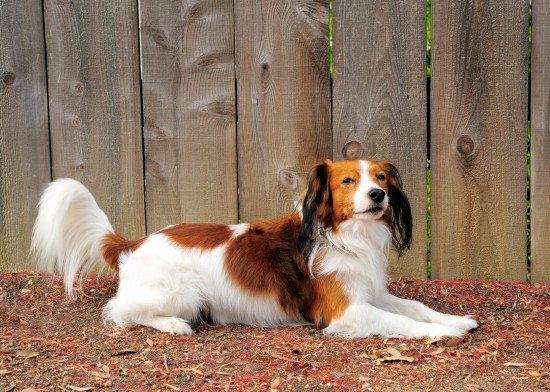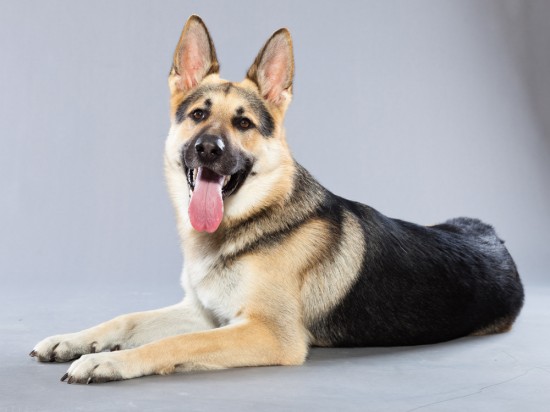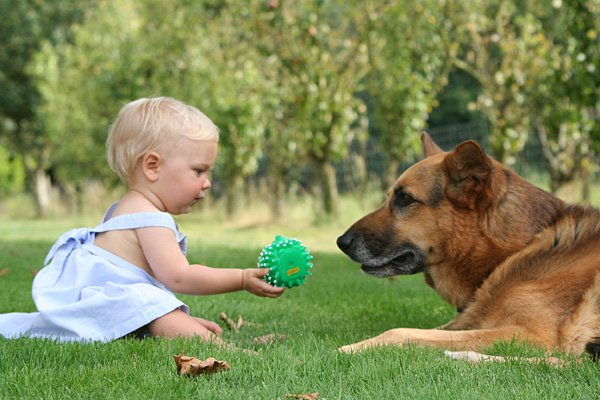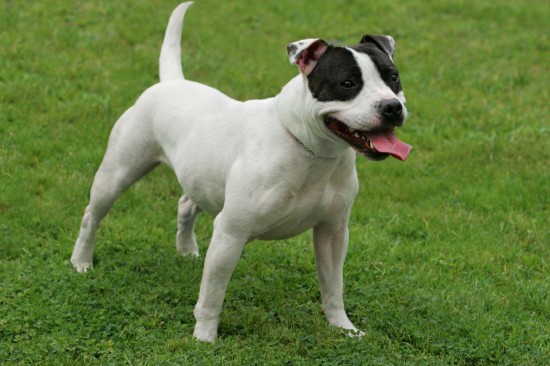
That newly planted flower garden in the yard has become a mess of uprooted bulbs and mounds of dirt. The culprit? Your favorite lovable dog. Digging is a natural action for a dog, but it can be one that can cause a lot of irritation if your yard or even your neighbor's yard becomes your dog's new favorite playground.
There are a number of reasons as to why a dog will dig. Digging can be traced back to a dog's wolfy ancestors who used digging as a tool for survival.
Caching
Most canines like to cache things. In the wild this is typically food, and if a wolf or other canine has too much food on hand, it often gets buried in a special spot that he will remember. This is useful for times when perhaps less food is around. Having a little extra stored away is rarely a bad thing.
Your dog may decide to bury food in a cache, but it could just as easily be anything at all that your dog has decided to treasure: a favorite toy, an old bone, even a stolen shoe. In fact, some dogs may decide to hide things that they might have stolen simply as a game.
Hot and Cold Issues
Dogs, certain breeds in particular, can be very sensitive to temperature. A long haired snow dog might get over warm in the summer heat and so dig a hole in the shade to cool off in. The earth a few inches down is often much cooler than the surface which is heated by the sun.
Short haired dogs may feel the cold much more than others and so might dig down a bit into the ground. This gives them a slightly more insulated place to lie down and shields them from the wind.
Separation Anxiety
Dogs with separation problems may try feverishly to dig out of any enclosure to get back to their owner. The frenzied nature which often accompanies this type of digging can make this a dangerous task for your dog.
Hunting
Certain breeds of dogs have been bred to pursue small mammals. Terriers in particular may enjoy digging into animal holes to get at rodents or other creatures.
Fun
Most dogs just enjoy digging out of fun, tearing up your entire yard and leaving many little holes behind. This kind of digging is often accompanied by lots of galloping around and general canine merriment.
Before you can work to rectify your dog's digging habits, you must first figure out why they dig in the first place. Most of these types of digging come with fairly obvious indicators, so it shouldn't take much time before you have your answer.
For a dog that caches treats and treasures, the simplest way is to not give out these treats and treasures unless your dog will finish them or else is indoors. Failing this, it's possible to designate a special place in the yard just for digging. Try burying a few treats in this special spot and encouraging your dog to retrieve them. You may need to work with the dog for a bit before he'll understand that the digging pit is the only spot for digging, and this is best done by simply distracting your dog from digging elsewhere and redirecting him to the digging area.
A dog struggling with temperature issues should simply be accommodated. Provide a hot dog with shade and a nice cool surface. Dogs like to lay spread out on hard surfaces that stay cool in the shade such as concrete or metal. Provide plenty of water, and perhaps even a kiddy pool for the dog to cool off in.
Dogs that dig for the joy of it can be corrected with the addition of a special digging area. You may also choose to fence off areas you would not like to be dug in. Some dog trainers suggest leaving your dog's feces in the holes, though unless your dog is digging repeatedly in a single spot, this is not much of a deterrent. Distracting your dog and rewarding him when he stops digging may be your best option.
Do you know that many intelligent dog breeds need mental stimulation apart from a healthy diet and adequate exercises? To learn more about other canine dog breeds and canine dog training, visit CanineTouch.com today.
 Excessive Barking - How to decide on use the perfect Anti Bark Collar For use on your Dog
Excessive Barking - How to decide on use the perfect Anti Bark Collar For use on your Dog
 Ten Uncommon Dog Breeds You Might Not Have Heard Of
Ten Uncommon Dog Breeds You Might Not Have Heard Of
 Osteosarcoma Or Bone Cancer In Dogs
Osteosarcoma Or Bone Cancer In Dogs
 Dog Training Classes - What they have to Offer
Dog Training Classes - What they have to Offer
 Encephalitozoon Cuniculi In Rabbits
Encephalitozoon Cuniculi In Rabbits
 Staffordshire Bull Terriers - Temperament & Colours
Staffordshire Bull Terriers - Temperament & Colours
Copyright © 2005-2016 Pet Information All Rights Reserved
Contact us: www162date@outlook.com